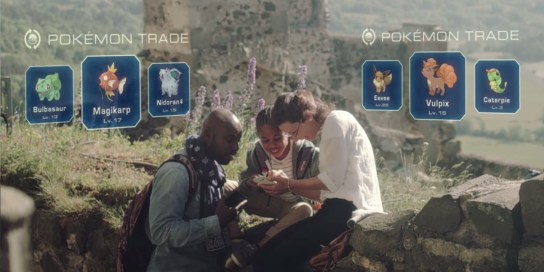
Having started upon a path towards advanced degrees with an emphasis in interactive media and online communities, it has increasingly become evident to me that there is no singular route to studying the emerging field of video games. As I have mentioned in the past, video games uniquely fall at the cross section of multiple disciplines, each with varying ways to analyze and interpret the social significance going on in these digital worlds.
Anthropology, Media Studies, Psychology, and, of course, Sociology, all offer valuable insights for researchers setting out upon this path towards the academia of video games, but the road isn’t probably the neatly paved one you hope it be. Academia, for all it affords and fails to be, is still a regimented system of bureaucracies and categories; those seeking to study video games in any of the aforementioned fields will undoubtedly come across hurdles and pitfalls. Despite this, we push on: we make concessions and we work at expanding the field inches at a time. A triumph has arisen in the developing field of Game Studies, an interdisciplinary field for all of these traditional academic interests and more.
What is Game Studies?
Wikipedia (The student in me is rebelling) defines Game Studies as
The study of games, the act of playing them, and the players and cultures surrounding them. It is a discipline of cultural studies that deals with all types of games throughout history. This field of research utilizes the tactics of, at least, anthropology, sociology and psychology, while examining aspects of the design of the game, the players in the game, and finally, the role the game plays in its society or culture. Game studies is oftentimes confused with the study of video games, but this is only one area of focus; in reality game studies encompasses all types of gaming, including sports, board games, etc.
That all sounds great! But what does that all encompass? This really is a large umbrella term that captures multidisciplinary research across the vast subject matter of gaming. This isn’t to be confused with game design, which of course is a vastly different discipline centered around the creation of games themselves. The best place to start to understand Game Studies would be with the theory behind it. A foundational theory connecting these discipline comes from Dutch theorist Johan Huizinga in his extensive exploration into how play connects society and culture. To summarize in the most simplistic way, Huizinga believes that play is an essential part of the cultural membrane that connects, one that brings people together and sets rules and boundaries to define the rules of play. This theory of play, originally formulated in the 1938 book Homo Ludens, has been expanded, reevaluated, and used to understand the cultural significance of gaming, even as it has evolved to to reach highly technological heights.
What role play holds in our life is an incredibly open and complex question, with endless angles for it to be tackled. Authors like Jesper Juul, Ian Bogost, Tracy Fullerton,and Jane McGonigal have taken upon this question in vastly different ways and they are just the start. My current research has led me to tackle this issue from a different take as well: evaluating what role deviance and punishment play in virtual worlds. Still, there is much to be explored and much to understand. Game Studies sounds to be a haven for all these inquiries and more.
What’s the Issues?
You may be thinking “Well, that sounds all great. Why aren’t we [academics interested in video games] all just flocking to Game Studies then?” . Unfortunately it’s not as easy as just that. Academia is slow to move and currently there are no programs that offer advanced degrees in game studies. Fortunately, Bonnie “Bo” Ruberg of The University of Southern California has been nice enough to put together a guide to obtaining a PhD in Game Studies. Their advice? Get in where you can. Find universities that have academics and professors who work and write in Game Studies, applying to their departments or related ones. Graduate programs are often about who you know, so such a recommendation is definitely valuable; find individuals you want to work with, not schools that you want to go to on name alone.
Of course graduate programs aren’t for everyone, and one is certainly able to contribute to the field without an advanced degree. For those not wishing to go back to school, the best thing I think one can do is create work and submit it to the appropriate sources. For all of you lovely game enthusiasts, an online journal for game studies has been created: Game Studies.
The Journal’s mission statement is:
To explore the rich cultural genre of games; to give scholars a peer-reviewed forum for their ideas and theories; to provide an academic channel for the ongoing discussions on games and gaming.
Sounds perfect…Now to just produce something worthwhile.
All of this is to say that we, gaming academics, have options and avenues available to us. It won’t be an easy route, but perhaps will prove to be a fruitful one. I am of course not in any way a Game Studies expert, so any oversights or generalizations can be attributed to ignorance. Of course I’m always willing to learn more, so if you have any insight or information that you feel I am leaving out, please let me know.
I hope this post was helpful. For any regulars (the few of you), I apologize for the lack of posts. Graduate school has a way of making you not feel like writing in your free time. I’m hoping to write and share more in the coming weeks. And now it’s time for me to bury myself in piles of graduate assignments and research.







